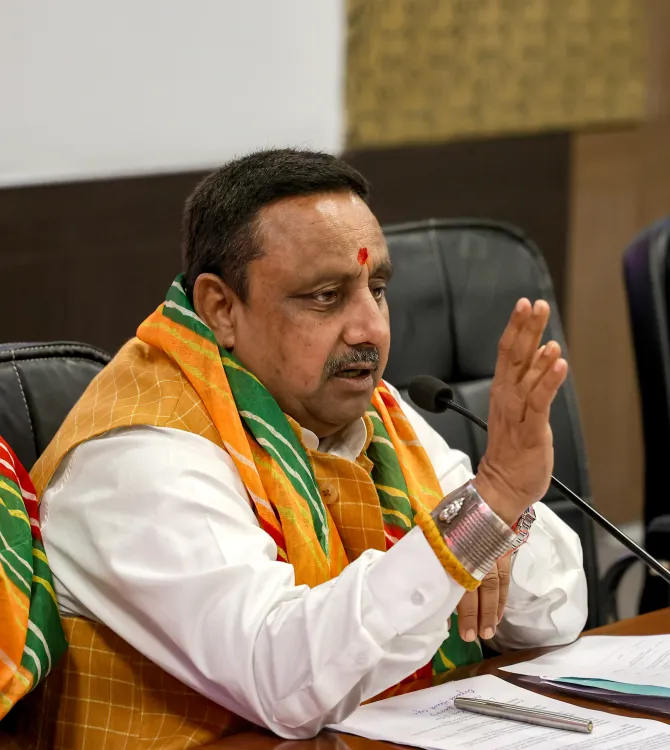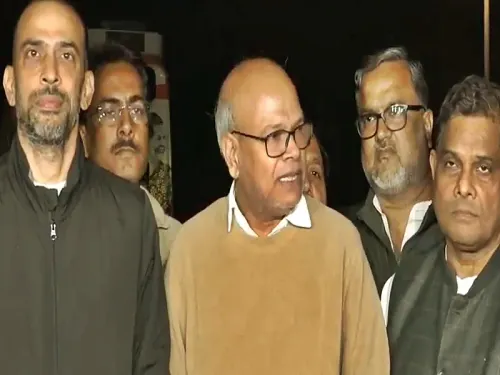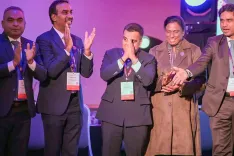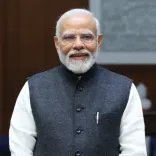Did BJP Endorse Ex-CJI Gavai's Views on Judiciary Independence?

Synopsis
Key Takeaways
- B.R. Gavai asserts there is no government interference in judiciary.
- The BJP endorses Gavai's remarks as a reflection of democracy.
- The Congress labels the statement as personal and points to perceived governmental control.
- Judicial independence remains a focal point in ongoing political debates.
- Gavai emphasizes the collegium's decision-making process is independent.
New Delhi, Nov 27 (NationPress) The BJP expressed approval on Thursday regarding the former Chief Justice of India, B.R. Gavai's statement that there is no governmental interference in the operations or verdicts of the judiciary.
This declaration emerges amidst persistent accusations from various political figures, including Rahul Gandhi, the Leader of the Opposition in the Lok Sabha, who have alleged that the BJP and the RSS exert undue influence over constitutional bodies.
Gandhi has repeatedly asserted that the judiciary is subjected to pressures from the administration headed by Prime Minister Narendra Modi.
In an interview with IANS, BJP MP Praveen Khandelwal remarked, "With B.R. Gavai's assertion, it should become abundantly clear to those who, driven by their political agenda, accuse the Supreme Court of operating under governmental pressure daily. Gavai has only recently stepped down from the Chief Justice position, making his comments particularly significant."
BJP MP Yogender Chandolia added that Gavai's statements epitomize the essence of India's democratic values.
He conveyed to IANS, "The remarks from B.R. Gavai, a distinguished former Supreme Court judge, post-retirement, embody the spirit of our democracy. The Constitution is inviolable; this is a sentiment we have consistently expressed. The Congress Party and its allies ought to realize that the Constitution represents the soul of our nation, and no entity holds the authority to modify it for personal gain."
BJP MLA Ram Kadam criticized the Opposition, stating they must recognize and respect the insights of the country's esteemed former judicial leaders.
In a conversation with IANS, Kadam asserted that Gavai's statement sends a clear warning regarding how the Congress misrepresents facts and creates misinformation about the Constitution, serving as a stern caution to those who mislead the public on constitutional issues.
In contrast, the Congress Party maintained that the former CJI's opinion is merely personal and referenced previous controversies.
Congress MP Tariq Anwar mentioned to IANS, "This might be his personal perspective, but it remains a fact that the government is attempting to bring all constitutional authorities under its dominion."
Congress spokesperson Surendra Rajput reiterated that while it may be Justice Gavai's individual view, he would like to remind him that five judges had taken to the streets advocating for justice.
Former CJI D.Y. Chandrachud had also addressed similar criticisms, stating that courts should not be perceived as opposition entities; their duty is to evaluate laws, not to replace elected officials.
In an exclusive interview with IANS on Thursday, former CJI Gavai refuted claims of governmental meddling and clarified the workings of the collegium system.
"Government interference is nonexistent. It is crucial that when the collegium arrives at a decision, numerous inputs are considered, including the perspectives of the executive, the Intelligence Bureau, and the law ministry.
"Furthermore, the views of consulted judges, relevant chief justices, chief ministers, and governors are taken into account. Following extensive discussions, the collegium makes an independent decision. This does not imply that the collegium operates under duress," he emphasized.









